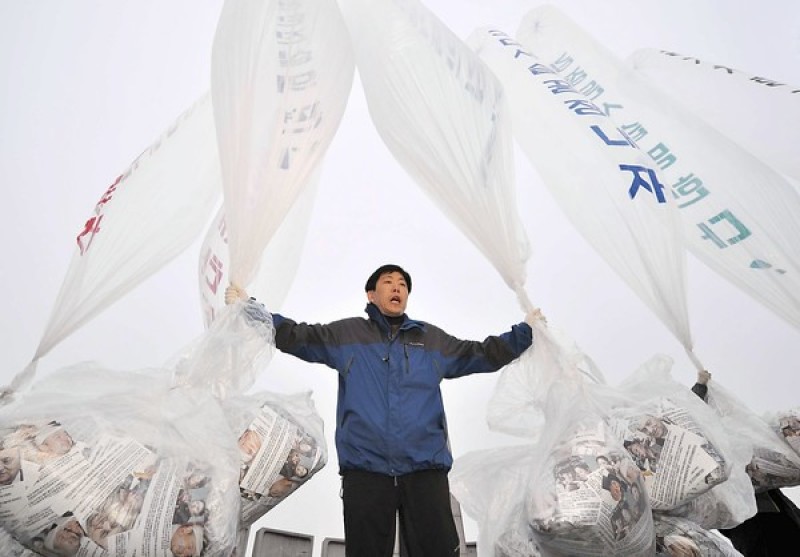
South Korea just passed a law on Monday banning the sending of leaflets, Bibles, other printed materials, flash drives, goods, and even money to North Korea.
Three months from now, Christian ministries, defectors, human rights activists, and other organizations who continue to send such items across the border can face up to three years in prison or be fined up to 30 million won, a report from Reuters said.
According to South Korea's Unification Ministry-the department that promotes the reunification of North and South Korea-the new law is a "minimal effort to protect the lives and safety of residents in border regions."
However, the measure drew criticism from various groups and individuals, including defector Kim Yong-hwa, who has been sending Bibles, rice, and mini transistor radios to the North. Even now, he has these items stored in plastic containers. They were supposed to be floated off to the North, but because of the new law, they remain stuck in his office.
In an interview with NPR, Kim admits he feels "South Korea is no longer a free democracy."
"Under Kim Jong Un's dictatorship, if he orders someone to die, then that person is executed. When President Moon Jae-in orders our work blocked, it becomes a crime punishable by up to three years in jail or $27,000 in fines. How are these two dictatorships different?" he commented through an interpreter.
During a summit held in April 2018, South Korean Pres. Moon Jae-in and North Korean Pres. Kim Jong Un signed an agreement to end hostile acts, which includes sending leaflets and propaganda materials by people from the South.
This agreement was not immediately enacted into law. However, in June, Kim Jong Un's sister, Kim Yo Jong, blew up an empty inter-Korean liaison office and threatened military action at the demilitarized zone if the sending of materials and leaflets are not stopped. She also said those who keep sending leaflets to North Korea are "human scum," according to World Magazine.
Alarmed by her threats, Seoul proposed the bill that has now been enacted into law. South Korea also intensified its crackdown on leaflet launches and balloon launches.
Voice of the Martyrs Korea is one of the groups that send Bibles to the North using large balloons. They have been doing this for 15 years and have enjoyed a good relationship with the authorities-until now.
In the same month Kim Yo Jong issued her threat, South Korean authorities informed Voice of the Martyrs Korea (VOM Korea) CEO Eric Foley that he and his team were no longer allowed to launch Bible balloons targeting the other side of the border. Foley is presently facing charges for his Bible launching activities.
Ji Seong-ho, a defector who has been elected to the National Assembly, believes South Korea should put the needs of North Korean citizens first before those of the North Korean government.
"If the current government truly cares about the twenty-five million North Koreans, it should contemplate the needs of the North Korean people-not the needs of the North Korean authorities," he said, according to the International Christian Concern.
In an interview with Radio Free Asia's Korean service, U.N. Special Rapporteur for North Korean Human Rights Tomás Ojea Quintana said the penalties for violators of the anti-leaflet law are "excessive."
"This penalty of imprisonment seems to be excessive for actions which are based on the exercise of the freedom of expression, a cornerstone for a democratic society," Quintana said.
"Under international human rights law, to which South Korea is obliged, restrictions on freedom of expression must be ... justified by a concrete necessity," he added.
Shin Hee-seok of the Transitional Justice Working Group said the new law denies North Koreans the right "to outside information."
"Such appeasement efforts only risk inviting further North Korean provocations and demands," Shin said.
























